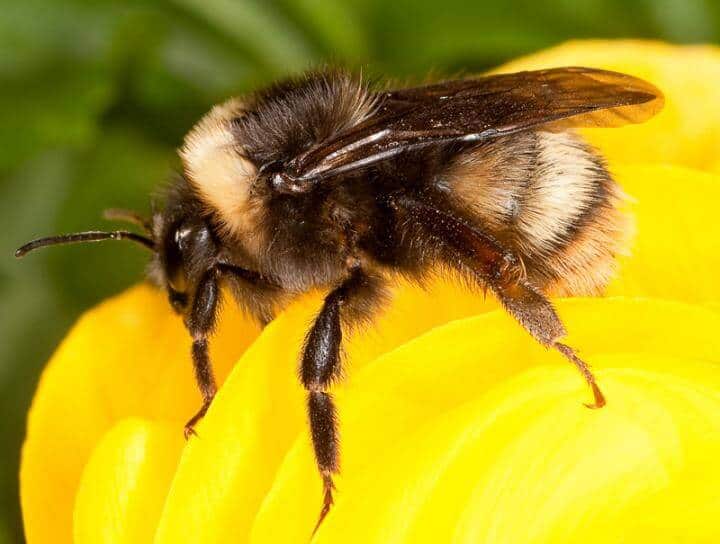Bombus occidentalis used to be the most common bumble bee species in the Pacific Northwest, but in the mid 1990s it became one of the rarest. Now, according to an article in the Journal of Insect Science offers, it may be making a comeback.
“The population seems at least to be re-emerging where it hadn’t been seen in the last 10 years,” said James Strange, one of several co-authors and a researcher at the USDA’s Pollinating Insects Research Unit at Utah State University. “There is some resilience in the population of Bombus occidentalis. They do seem to be coming back.”
The Nosema parasite might have been a factor in the bee’s decline, but whether it’s the sole factor remains an open question. Trying to better understand the impact of Nosema on Bombus occidentalis is difficult because laboratory studies are difficult to do.
“When we try to raise the bees in captivity, they die, so we can’t do a lot of experimental work to show that this is really the thing [killing bees],” Dr. Strange said. “We have a lot of correlation, but we can never get the species without the pathogen. We can’t clean this pathogen out.”
The study’s findings raise the question of why the population decline appears to have stopped. Dr. Strange’s answer is “evolution.” The pathogen’s virulence may have simply declined, or some individuals of Bombus occidentalis may have developed resistance to the pathogen.
The full article, “Evidence for Bombus occidentalis (Hymenoptera: Apidae) Populations in the Olympic Peninsula, the Palouse Prairie, and Forests of Northern Idaho,” is available at http://dx.

